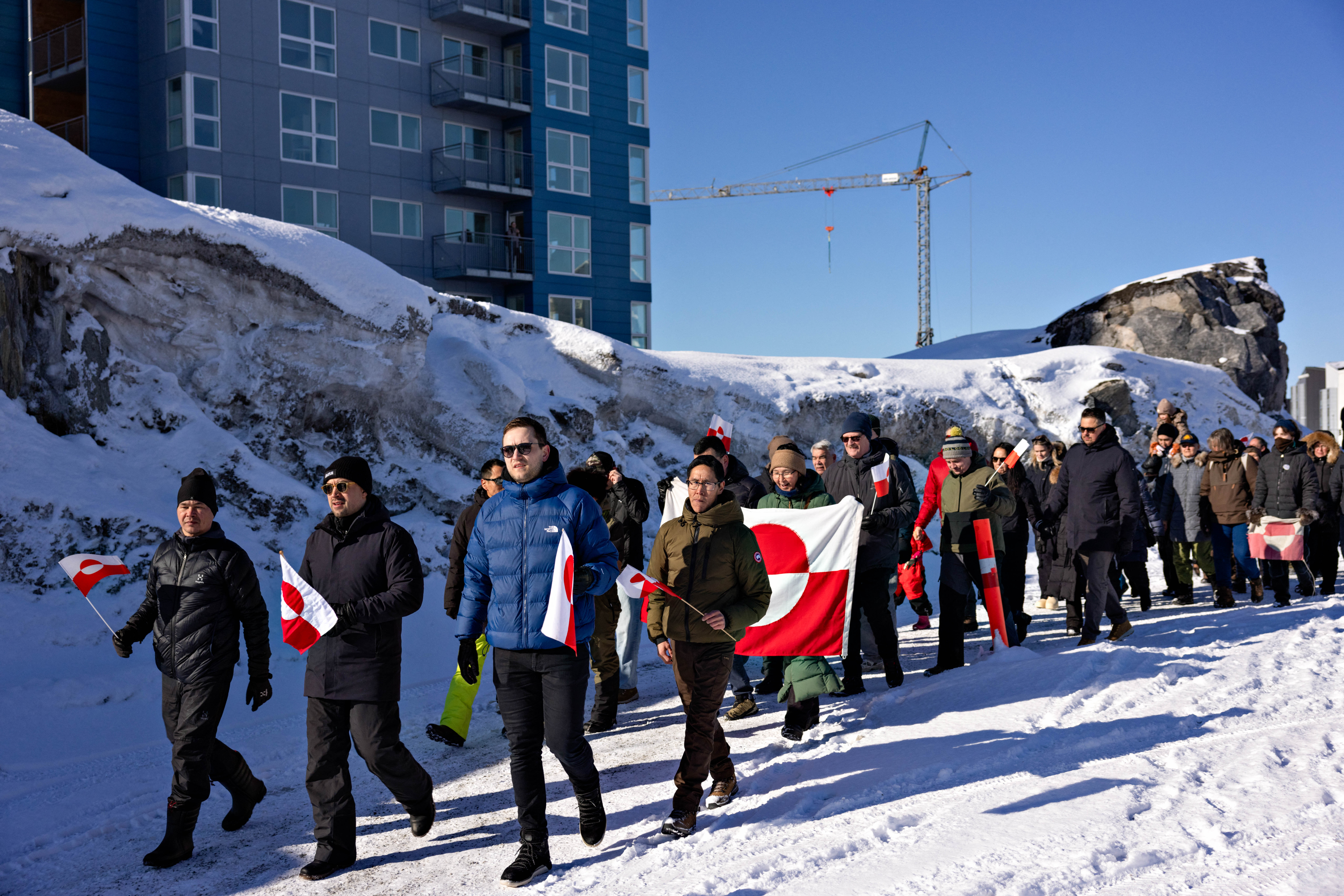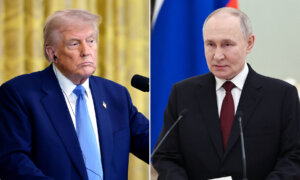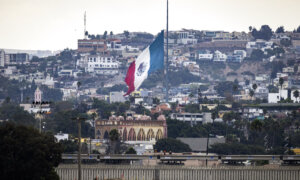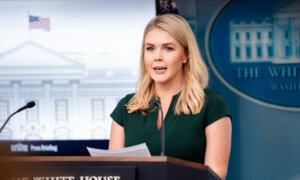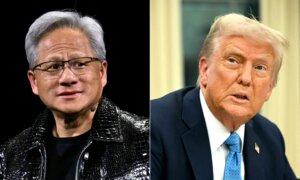Just hours before U.S. Vice President JD Vance arrived in Greenland, a quartet of political parties announced they had formed a coalition to govern the semi-autonomous Danish island territory.
The new governing coalition includes four of the five parties that won seats in Greenland’s March 11 parliamentary election, representing 23 of the country’s 31 legislative seats. The national newspaper Sermitsiaq reported that representatives of Greenland’s Demokraatit, Inuit Ataqatigiit, Siumut, and Atassut parties gathered for a March 28 signing ceremony to enact the new governing agreement.
Jens-Frederik Nielsen, leader of the Demokraatit party, the top-performing party in the election, has said he wanted to form the broadest governing coalition to convey internal stability and unity ahead of Vance’s visit. U.S. President Donald Trump and other members of his administration have repeatedly indicated a growing U.S. interest in Greenland in recent months, with the president suggesting that the United States could take control of the island territory “one way or the other.”
Greenland has notable valuable mineral deposits and straddles strategic air and sea routes along the Arctic, where the United States is increasingly vying for an advantage against competitors such as Russia and China.
Vance arrived at the Pituffik Space Base on Friday to meet with U.S. Space Force Guardians stationed there and discuss the strategic role U.S. forces play in Greenland.
While the Trump administration is seeking to grow its influence in Greenland, the people of the island nation are working out their best path for independence from Denmark.
The Naleraq party, the second-best-performing party in the March election, dropped out of the negotiations to form Greenland’s new coalition government. According to Sermitsiaq, party chairman Pele Broberg said Naleraq split with the other parties amid disagreement about Greenland’s independence.
Naleraq’s platform entails a more immediate push for independence. By contrast, the new governing coalition agreement suggests a more gradual independence process.
The coalition agreement specifically notes that Greenlanders should first reclaim control over parts of the island currently administered by Denmark. The agreement specifies that Greenland’s government should also negotiate international economic partnerships and plans to further develop the island territory.
Nielsen is set to serve as chairman of the Greenlanders’ Union. The governing agreement positions other members of the Demokraatit party to serve as ministers of education, culture, sports, and the church, as well as fisheries, hunting, agriculture, and self-sustainability. Another Demkraatit party member will serve as a representative on matters relating to health and disability.
Members of the Inuit Ataqatigiit party will serve as representatives for finances and taxes; business and raw materials; housing, infrastructure, and outlying districts; and children, youth, and families.
A member of the Siumut party will serve as a minister of foreign affairs and research, and a member of the Atassut will serve as the minister of social affairs, the labour market, and home affairs.
The Associated Press contributed to this report.
